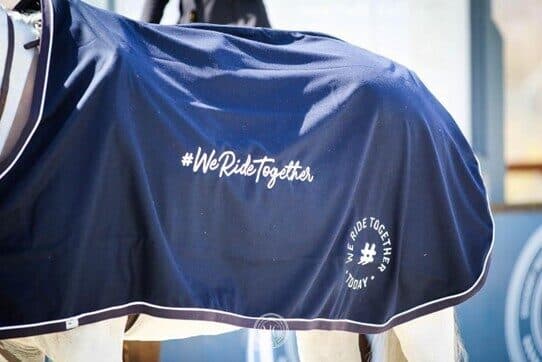4 Things You Should Know About Your Coach

Trainers are some of the most important people in our lives. They develop our skills, ensure that our horses receive quality care, and look out for our best interests as equestrians.
But research shows that more than 50% of athletes experience some form of abuse in sport, and authority figures and peers like coaches, trainers and teammates are the most common perpetrators. So, before we commit to and trust a new trainer with some of the most important things in our lives – our well-being, our horses, and our kids – it’s important that we do our own research.
#1 - Go beyond the background check
Very few perpetrators of abuse are ever incarcerated – approximately 2.49%. So it’s important that we do more than just search for criminal history. By using SafeSport’s Central Disciplinary Database, we can go a step further in checking a trainer’s history.
Ask about previous volunteer experience, and follow up with those organizations, if applicable. Ask open-ended questions to encourage broad answers; this can help you understand a trainer’s personality and temperament. And follow up with references, if you can.
Social media is also a great way to go beyond the background check. Is your new trainer respectful, polite, and kind on their social media platforms? Do they follow accounts that make you uncomfortable or seem inappropriate for adults who work with minors? In 2025, social media can be a useful tool for determining if your new coach is the right fit for you.
#2 - Confirm various types of training
Eventing is dangerous! We wear helmets and air vests, but every time we get on a horse, we know there’s risk involved. Confirm that your new trainer has various types of training, like CPR training, first aid, mental health training, and specialized harassment and sensitivity training.
Additionally, encourage your new trainer to integrate a Code of Conduct into their program so that you are all on the same page in terms of acceptable behavior and best practices.
#3 - Determine a system of checks and balances is in place
Power imbalances are inherent in all sports, and they’re not always a bad thing. But checks and balances have to be in place to ensure that people with power don’t abuse it.
This can be hard to do in the sport setting in some organizations that may be small, elite, or siloed. Coaches may be positioned as the only source of knowledge or best shot for a rider to progress in their eventing career.
But when this happens, riders and their families can be taken advantage of. In these circumstances, it is important for athletes, caregivers, and observers to do a gut check and seek outside expertise if they feel that an uncomfortable situation or dynamic is occurring or developing.
Remember perspective and that there are always other trainers, barns, and opportunities, regardless of how limited things may seem. A rider’s best interest should always be paramount.
#4 - Research their reputation
Just like how you might talk to a parent whose child formerly had the teacher your child now has, seek out former clients of your new potential trainer. Confirm their competence and ability to teach at the level you need. Observe them at a show if you can.
Take note of what you see regarding how they interact with their clients, if they observe professional boundaries, and if they speak respectfully. Ask questions and listen about clues to their reputation, if they are kind to their riders, if they are too well-liked or give off any uncomfortable vibes. Often, perpetrators in sport are highly regarded, sociable, and their misconduct hides under this guise.
Pay attention to if others regard the coach with fear or if you notice any off-putting comments or red flag behavior. This is where you can use your intuition and knowledge of healthy and unhealthy coach-athlete relationship dynamics to determine if this is a coach you want to work with. Also, we can talk to former clients and boarders to see if they had positive or negative experiences, or if they witnessed anything that made them uncomfortable.
Eventing should always be as safe and healthy as possible, which means we all have a role to play in keeping it that way. To learn more about safeguarding and find abuse prevention resources, check out www.WeRideTogether.today.
All Sports, One Goal.
#WeRideTogether















